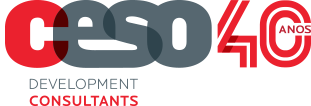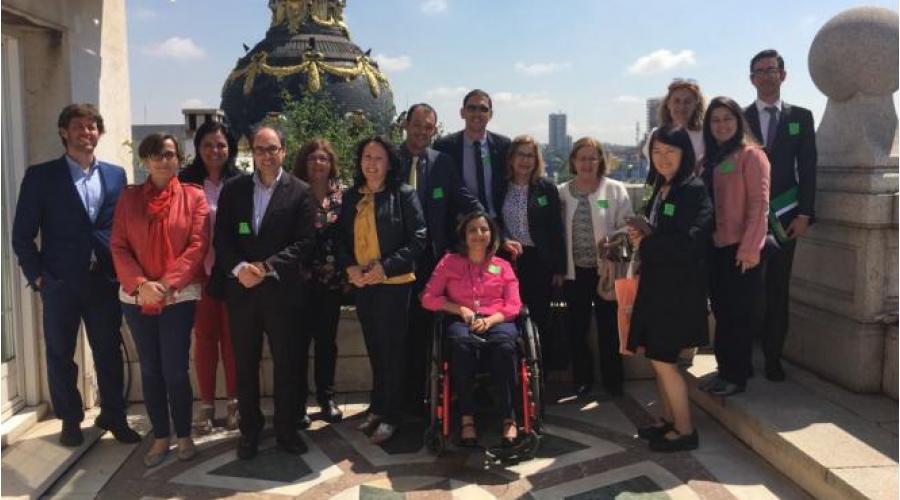
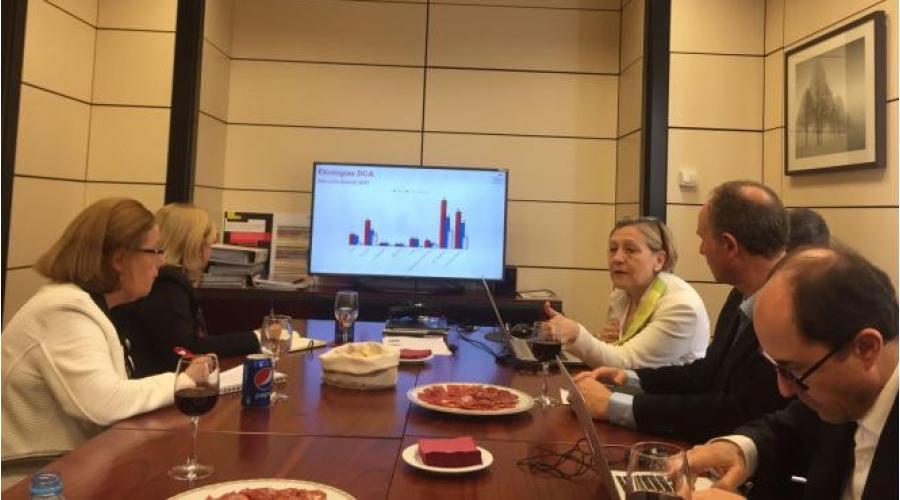
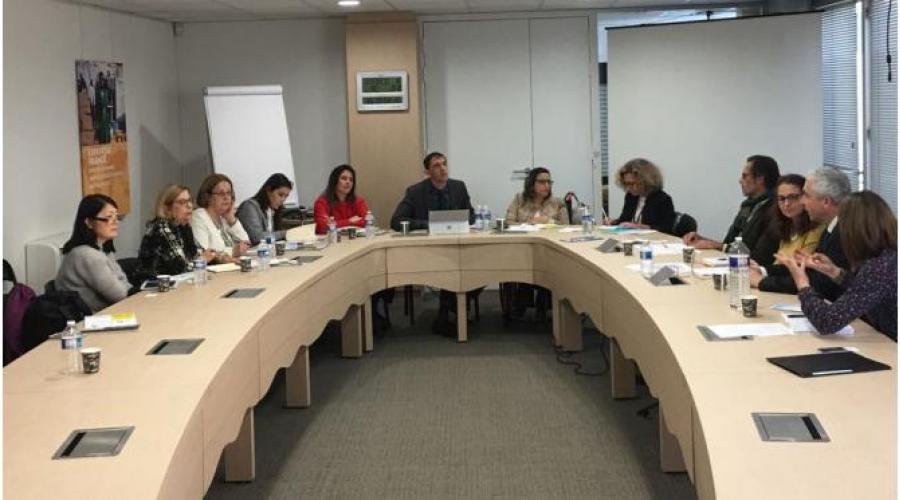
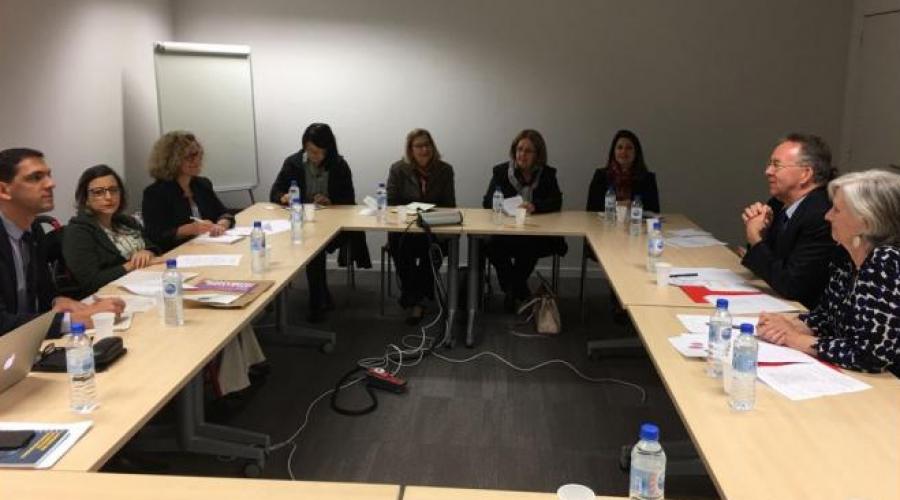
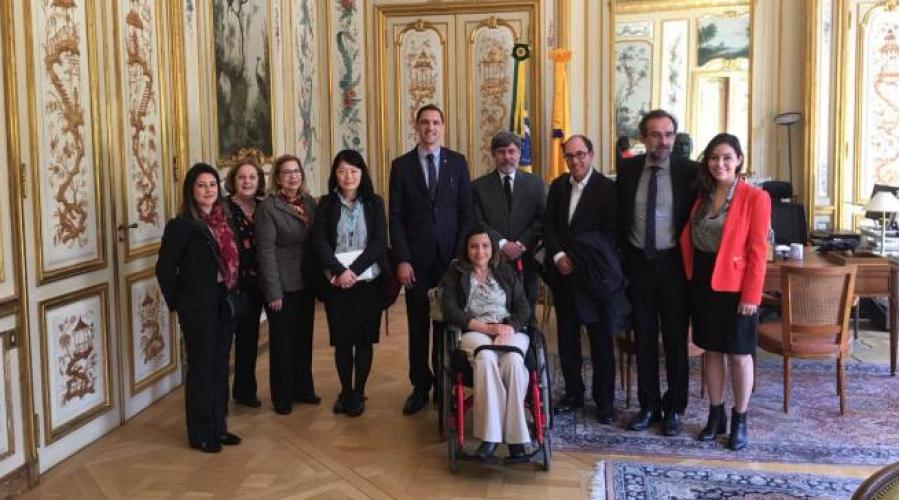
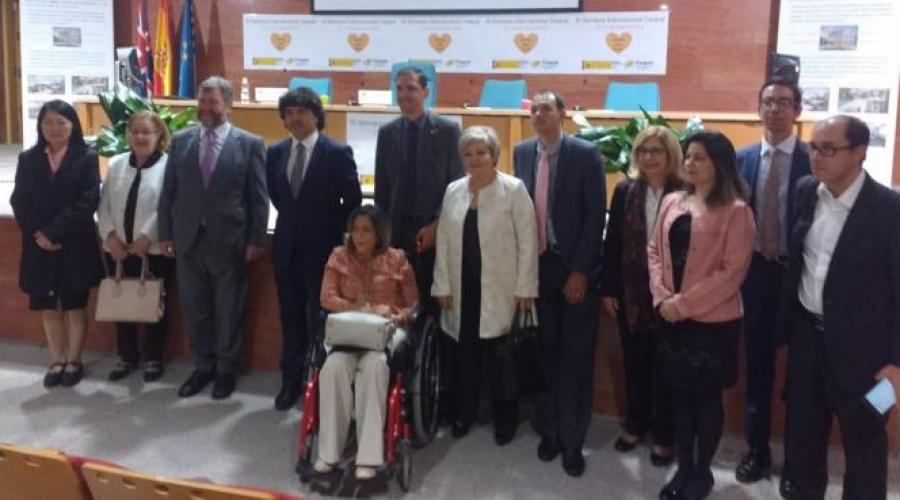
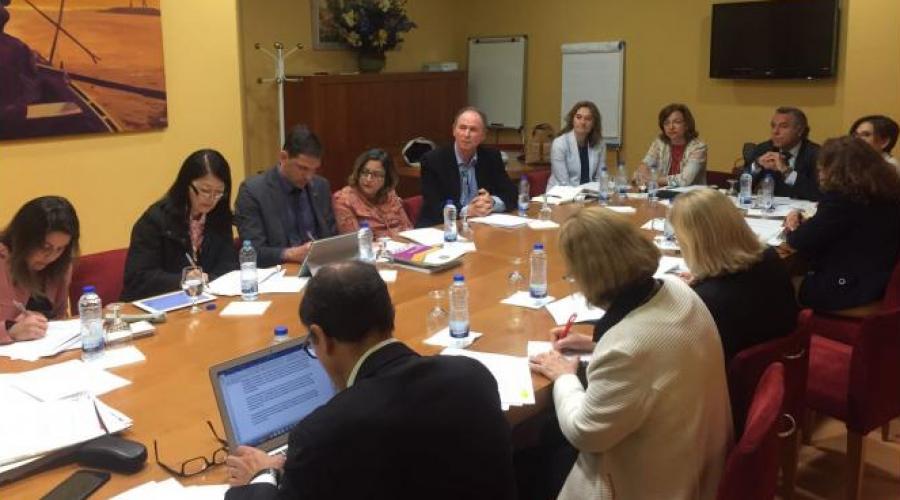
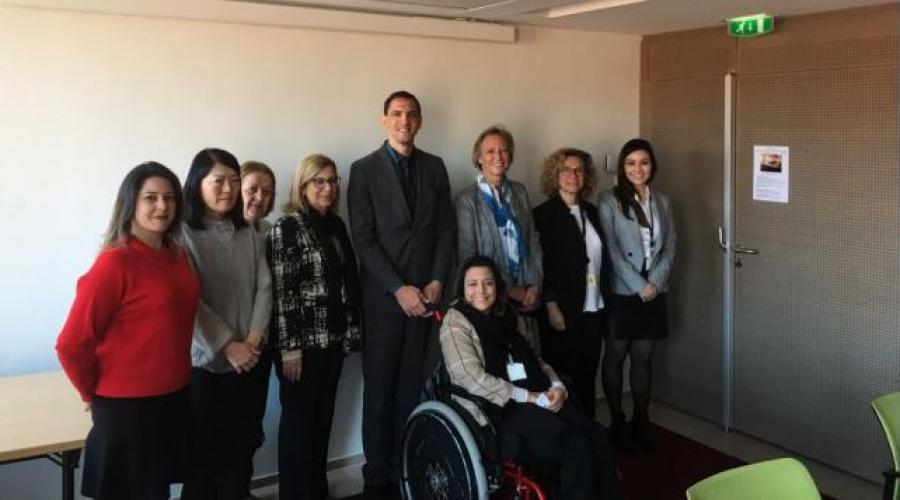
Experts from the Ministry of Human Rights (MDH) of Brazil participated, from May 17 to 22, in a technical mission to learn about the disability assessment systems applied in France and Spain, in particular as it relates to disability information systems, public departments, teams of evaluators and funding. The mission is part of the project aimed at strengthening sectoral dialogues in the partnership between the European Union and Brazil, in the context of promoting the rights of people with disabilities, especially in what concerns the exchange of experiences on this subject.
Carolina Sanchez Gomes, Director of Thematic Policies of the National Secretariat for the Rights of Persons with Disabilities at MDH and other Brazilian technicians, visited entities and public departments that deal with the disability assessment system of both countries; these are the cases of the Ministry of Labor and Social Affairs, the Center for the Attention of Persons with Disabilities in Spain, and the Houses for Persons with Disabilities in France. The visits aimed to learn about the reality there in what concerns to the process of disability assessment, allowing the verification of strengths and difficulties, in order to contribute to the implementation or improvement of the disability assessment process in the countries involved.
The new concept of disability brought by the United Nations Convention on the Rights of Persons with Disabilities, has led to changes in the legislation and procedures of the countries that have ratified it. In this way, the evaluation of this condition for the recognition of rights, access to public goods and services, has been experiencing significant changes around the world.
"When countries ratified the Convention on the Rights of Persons with Disabilities in 2008, they undertook to assess disability in a new way according to World Health Organization requirements, because disability is generally assessed by the medical model. However, today the deficiency is defined by the physical, sensorial, mental and intellectual constraints in interaction with the environmental barriers. And this way of assessing disability (CIF) is a challenge for every country in the world", said Carolina.
In her view, Brazil is still initiating this process; so Carolina Rodrigues therefore underlined the importance of the mission to a better understanding of the methods of assessing disability used in other countries, particularly in Europe. In Brazil, the process of transition from a purely medical model of disability to a biopsychosocial model, established by the Convention and corroborated by the Brazilian Law on the Inclusion of Persons with Disabilities, is in progress and there are advances and challenges in this construction to be shared with the European Union countries. Both the creation and application of disability assessment tools are challenges and current needs for countries.
For his part, Rodrigo Machado, Coordinator-General for the Accessibility of the National Secretariat for the Rights of Persons with Disabilities, MDH, believes that the visits to Madrid and Paris are fundamental to know the reality of these two European countries with regard to disability assessment, by expanding information on the types of public policies on disability assessment in Europe.
Rodrigo Machado also pointed out that "the mission does not end in Madrid; in June we will hold a seminar in Brasilia with the presence of groups from Paris and Madrid to further expand information on the subject and contribute to the implementation of disability assessment systems in the countries involved. "
June 2018.
